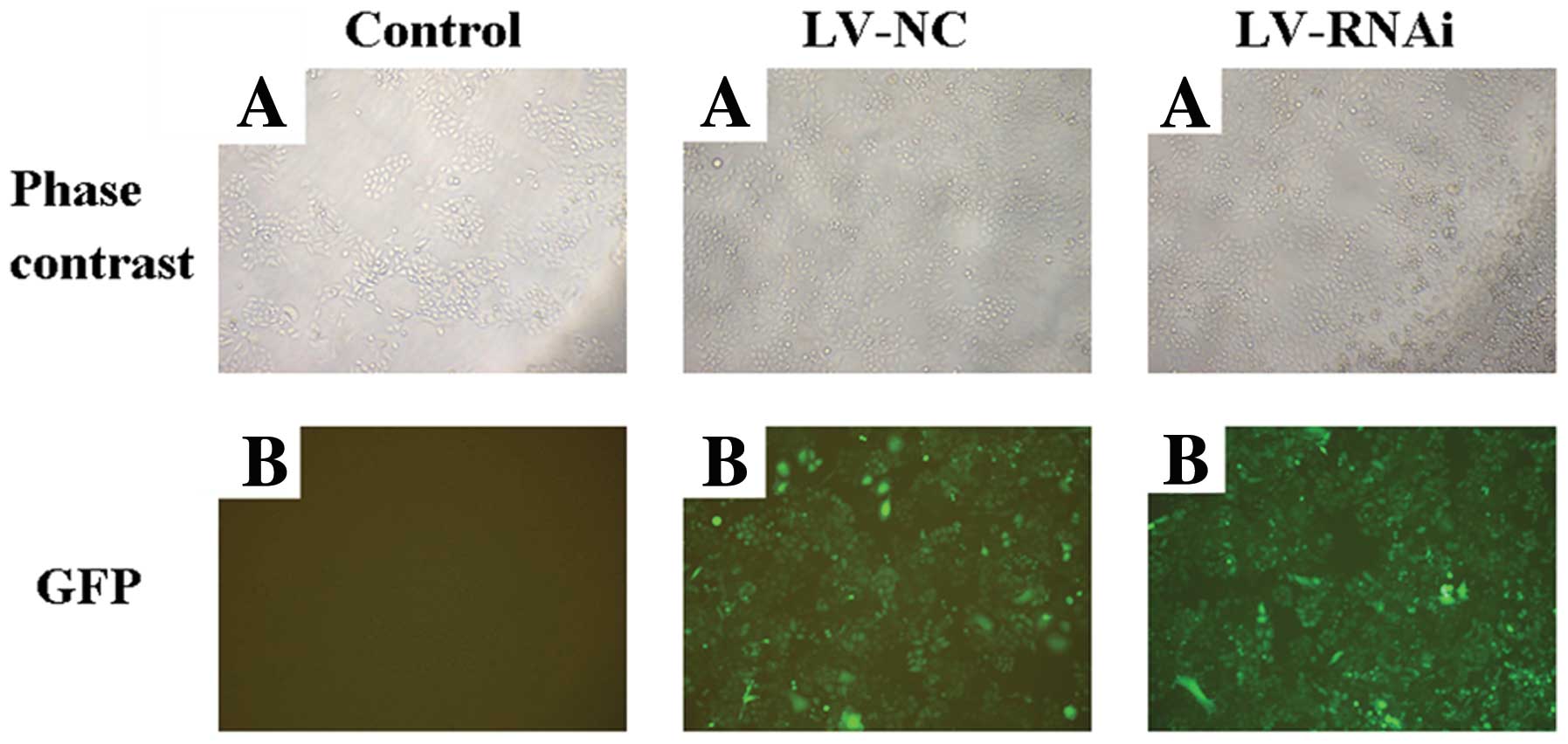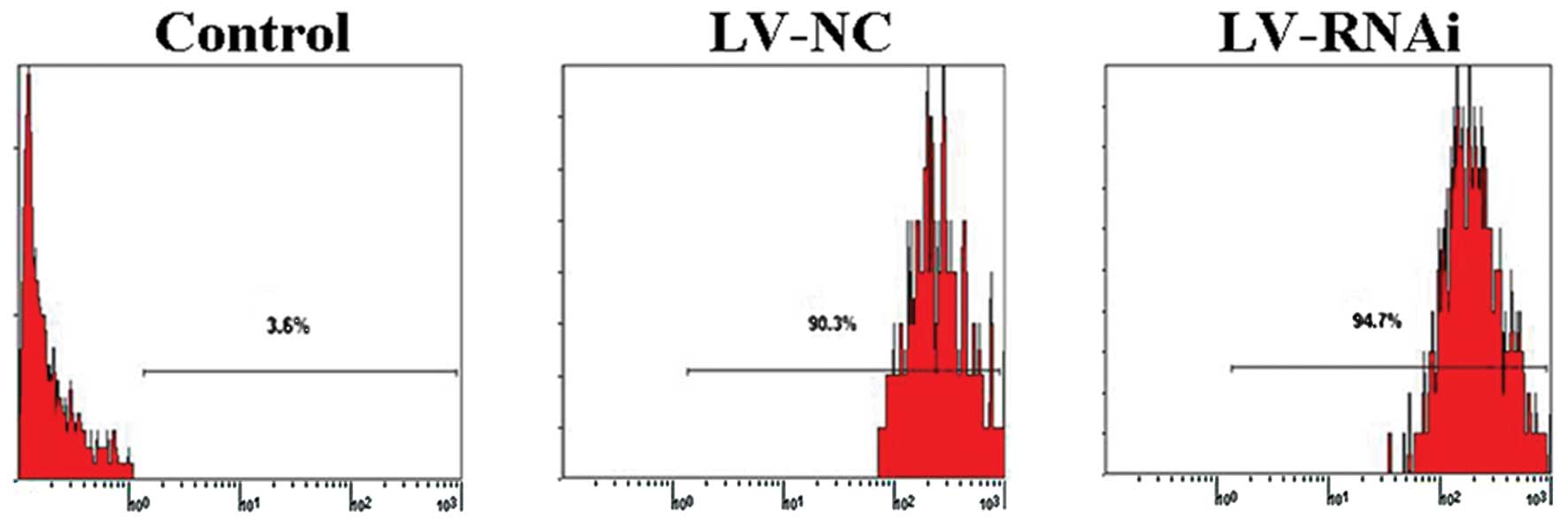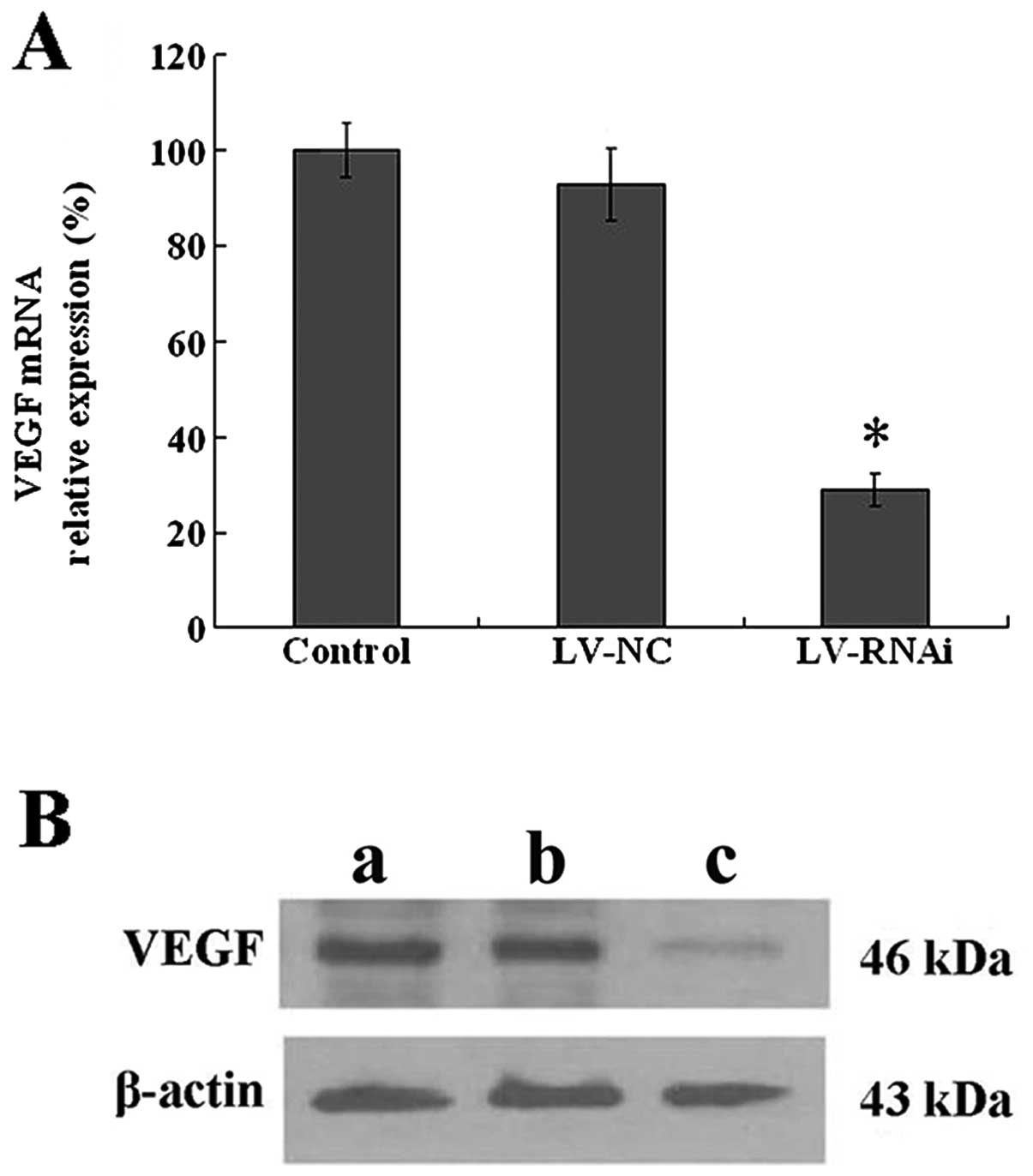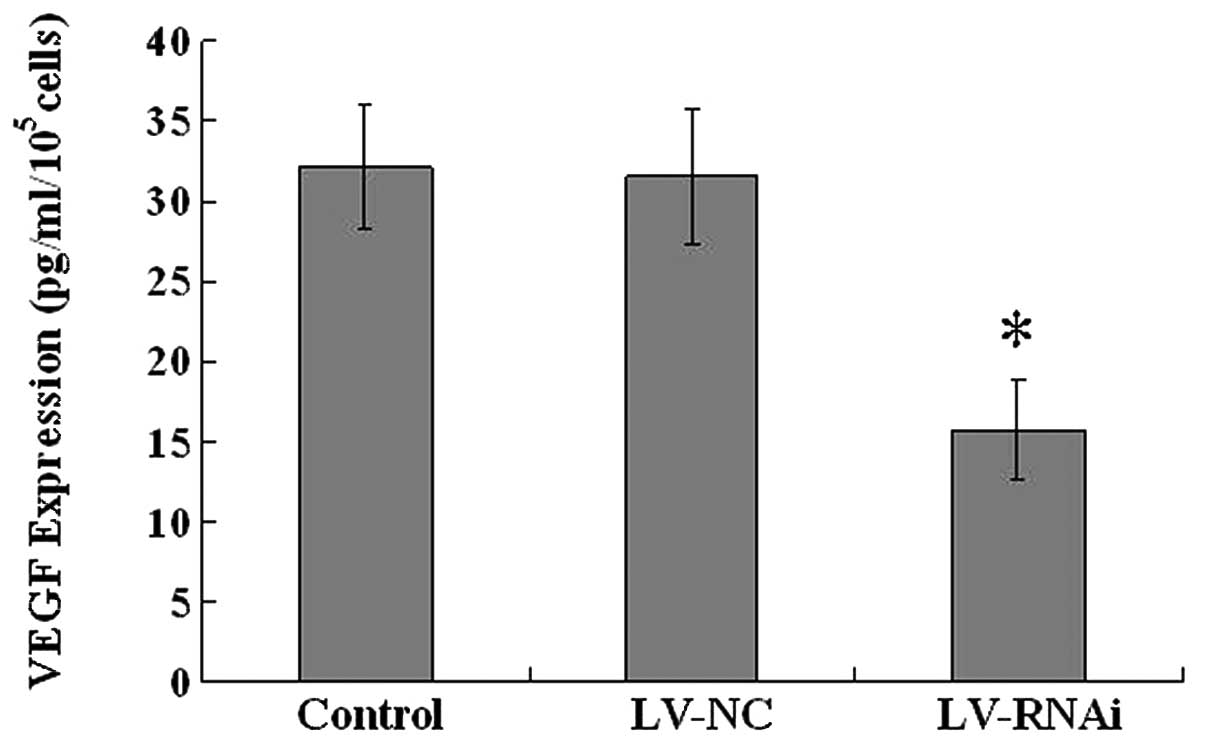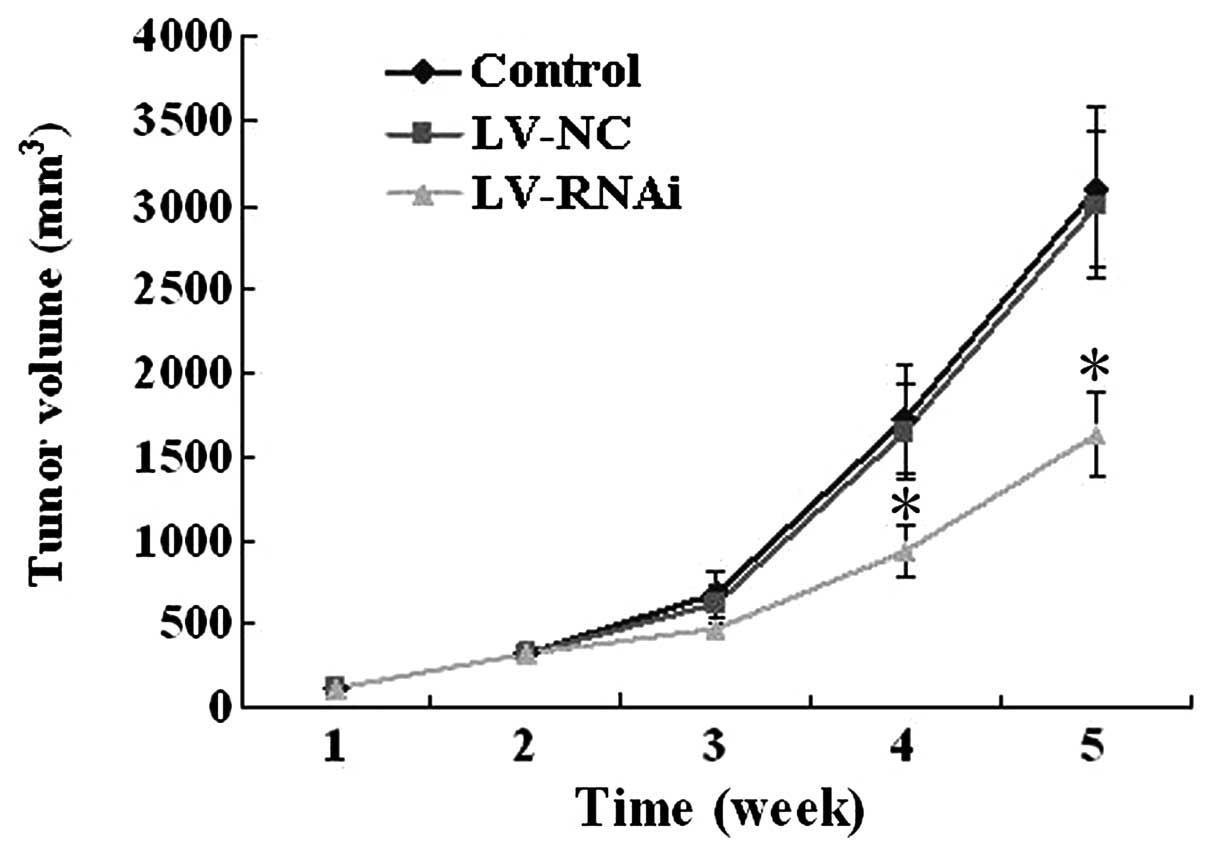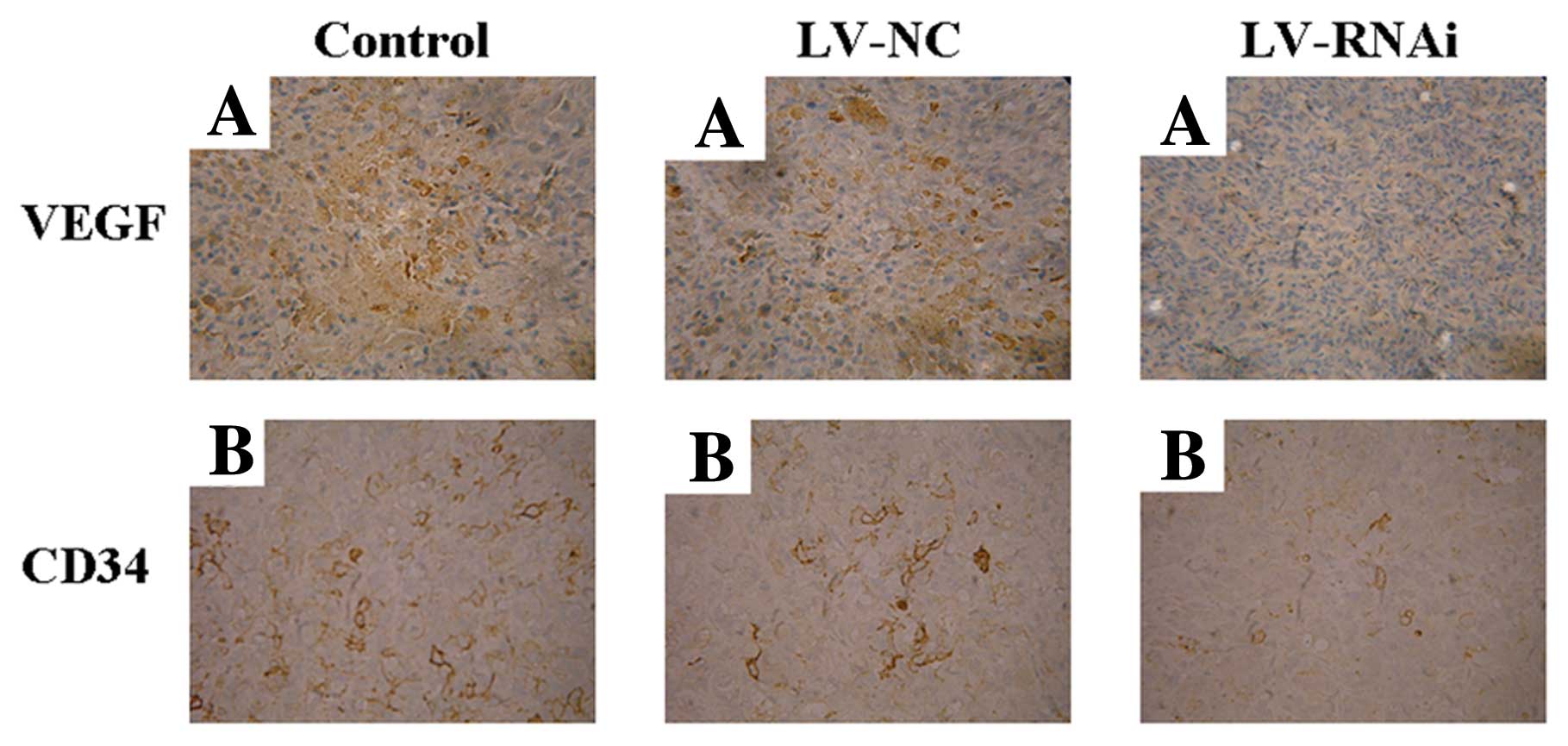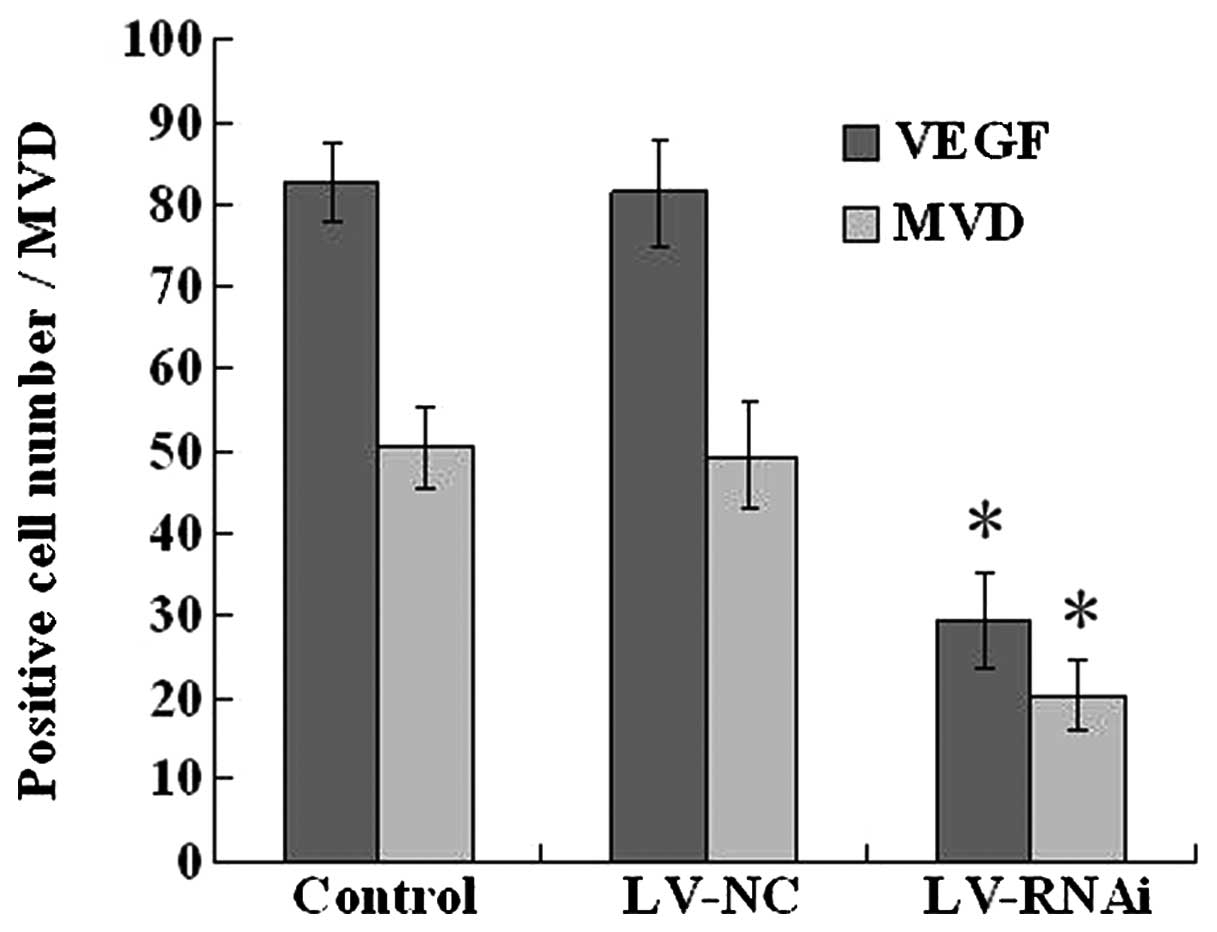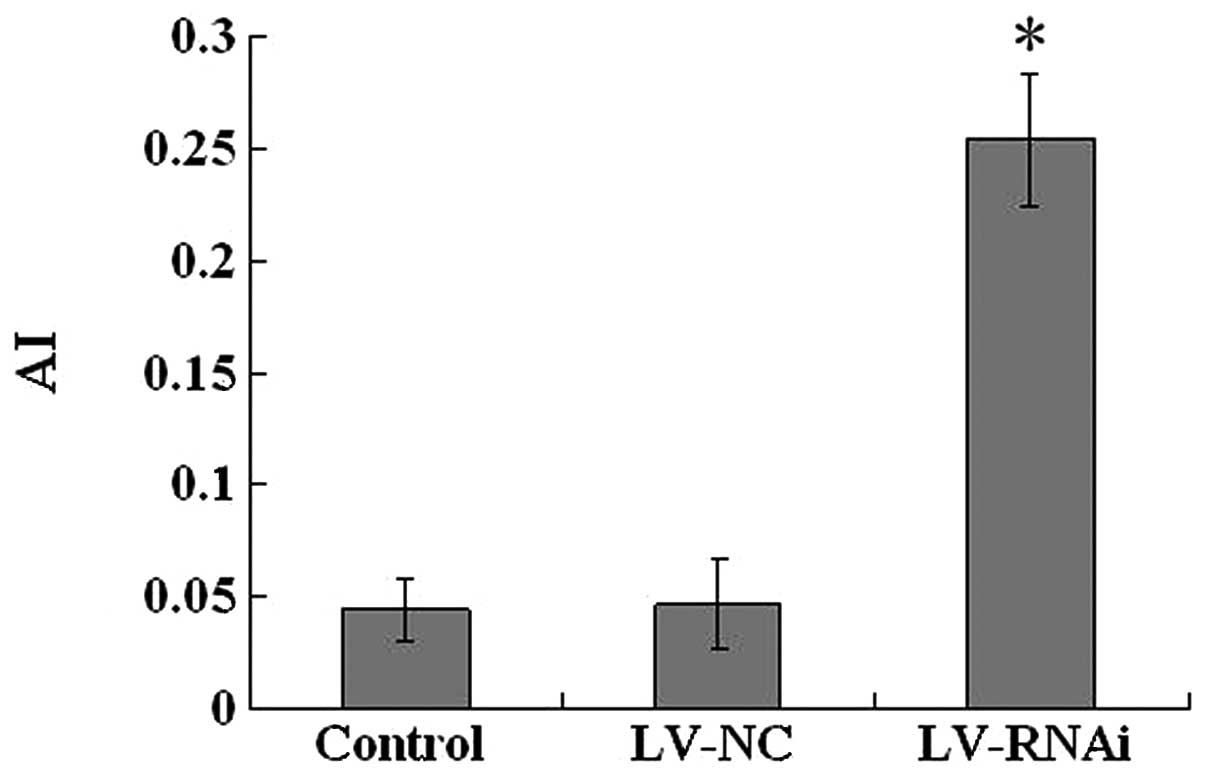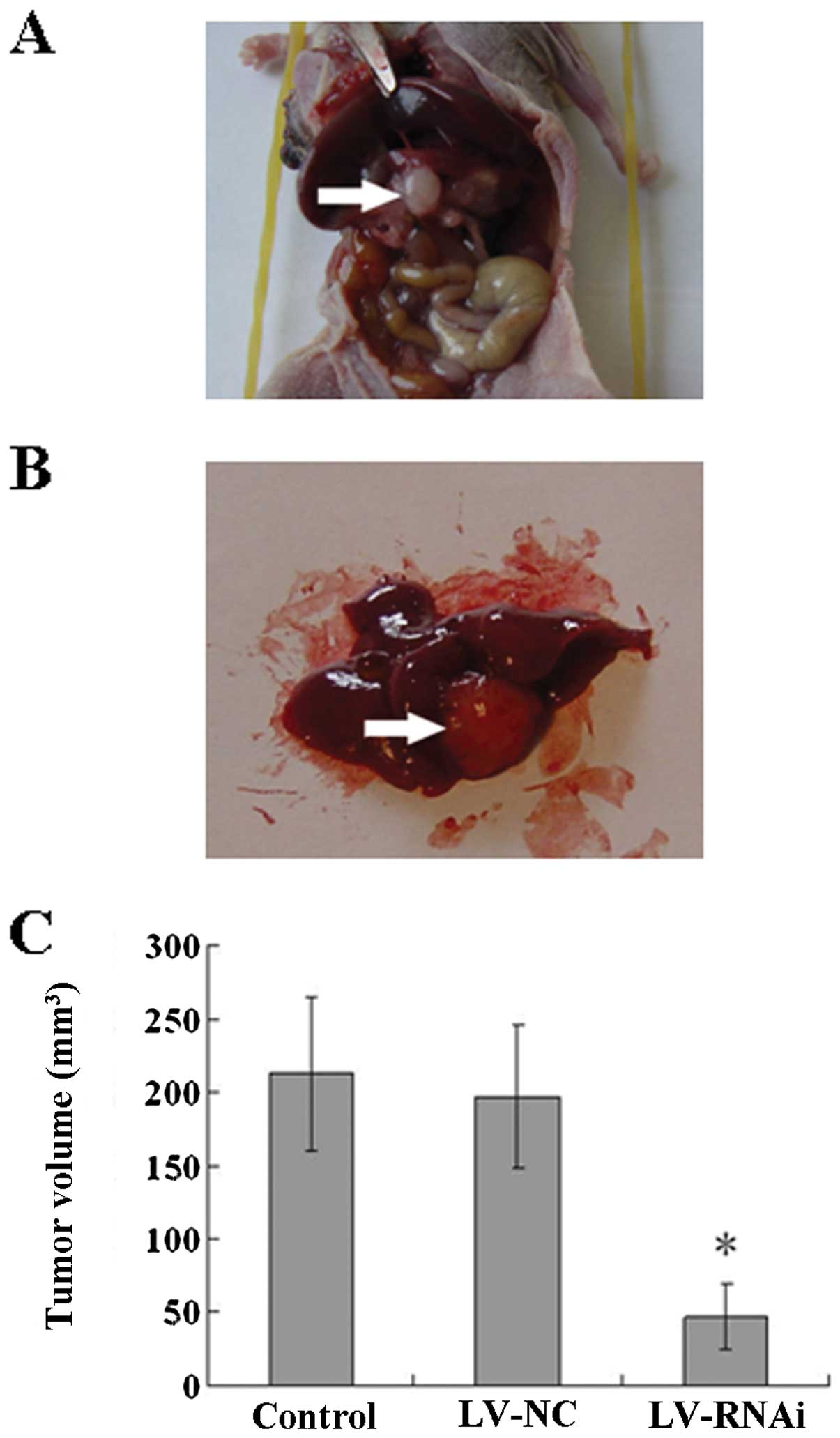|
1
|
Jemal A, Siegel R, Ward E, et al: Cancer
statistics, 2007. CA Cancer J Clin. 57:43–66. 2007. View Article : Google Scholar
|
|
2
|
Neoptolemos JP, Cunningham D, Friess H, et
al: Adjuvant therapy in pancreatic cancer: historical and current
perspectives. Ann Oncol. 14:675–692. 2003. View Article : Google Scholar : PubMed/NCBI
|
|
3
|
Hidalgo M: Pancreatic cancer. N Engl J
Med. 362:1605–1617. 2010. View Article : Google Scholar
|
|
4
|
Ghaneh P, Costello E and Neoptolemos JP:
Biology and management of pancreatic cancer. Postgrad Med J.
84:478–497. 2008. View Article : Google Scholar
|
|
5
|
Pan X, Sheng W, Zhu Q, et al: Inhibition
of pancreatic carcinoma growth by adenovirus-mediated human
interleukin-24 expression in animal model. Cancer Biother
Radiopharm. 23:425–434. 2008. View Article : Google Scholar : PubMed/NCBI
|
|
6
|
Folkman J: Tumor angiogenesis: a possible
control point in tumor growth. Ann Intern Med. 82:96–100. 1975.
View Article : Google Scholar : PubMed/NCBI
|
|
7
|
Kerbel RS: Tumor angiogenesis. New Engl J
Med. 358:2039–2049. 2008. View Article : Google Scholar : PubMed/NCBI
|
|
8
|
Dai J and Rabie A: VEGF: an essential
mediator of both angiogenesis and endochondral ossification. J Dent
Res. 86:937–950. 2007. View Article : Google Scholar : PubMed/NCBI
|
|
9
|
Midgley R and Kerr D: Bevacizumab: current
status and future directions. Ann Oncol. 16:999–1004. 2005.
View Article : Google Scholar : PubMed/NCBI
|
|
10
|
Weidner N, Folkman J, Pozza F, et al:
Tumor angiogenesis: a new significant and independent prognostic
indicator in early-stage breast carcinoma. J Natl Cancer Inst.
84:1875–1887. 1992. View Article : Google Scholar : PubMed/NCBI
|
|
11
|
Olson TA, Mohanraj D, Carson LF, et al:
Vascular permeability factor gene expression in normal and
neoplastic human ovaries. Cancer Res. 54:276–280. 1994.PubMed/NCBI
|
|
12
|
Seo Y, Baba H, Fukuda T, et al: High
expression of vascular endothelial growth factor is associated with
liver metastasis and a poor prognosis for patients with ductal
pancreatic adenocarcinoma. Cancer. 88:2239–2245. 2000. View Article : Google Scholar : PubMed/NCBI
|
|
13
|
El-Houseini ME, Abdel-Azim SA, El-Desouky
GI, et al: Clinical significance of vascular endothelial growth
factor (VEGF) in sera of patients with pediatric malignancies. J
Egypt Natl Canc Inst. 16:57–61. 2004.PubMed/NCBI
|
|
14
|
Rutkowski P, Kamińska J, Kowalska M, et
al: Cytokine and cytokine receptor serum levels in adult bone
sarcoma patients: correlations with local tumor extent and
prognosis. J Surg Onco1. 84:151–159. 2003. View Article : Google Scholar : PubMed/NCBI
|
|
15
|
Merritt WM, BarEli M and Sood AK: The
dicey role of dicer: implications for RNAi therapy. Cancer Res.
70:2571–2574. 2010. View Article : Google Scholar : PubMed/NCBI
|
|
16
|
Agrawal N, Dasaradhi PV, Mohmmed A, et al:
RNA interference: biology, mechanism, and applications. Microbiol
Mol Biol Rev. 67:657–685. 2003. View Article : Google Scholar : PubMed/NCBI
|
|
17
|
Buchschacher GL and Wong-Staal F:
Development of lentiviral vectors for gene therapy for human
diseases. Blood. 95:2499–2504. 2000.PubMed/NCBI
|
|
18
|
Naldini L: Medicine. A comeback for gene
therapy. Science. 326:805–806. 2009. View Article : Google Scholar : PubMed/NCBI
|
|
19
|
Li L, Zhang R, Cen JN, et al: Construction
and identification of lentiviral vector-mediated RNA interference
of VEGF gene. Soochow Univ J Med Sci. 28:20–22. 2008.(abstract in
English).
|
|
20
|
Li L, Zhang R, Cen JN, et al:
Lentivirus-mediated RNA interference targeting vascular endothelial
growth factor gene enhances the sensitivity of K562 cells to STI
571. Chin J Pathophysiol. 25:1122–1126. 2009.(abstract in
English).
|
|
21
|
Weidner N: Intratumor microvessel density
as a prognostic factor in cancer. Am J Pathol. 147:9–19.
1995.PubMed/NCBI
|
|
22
|
Korc M: Pathways for aberrant angiogenesis
in pancreatic cancer. Mol Cancer. 2:2–8. 2003. View Article : Google Scholar
|
|
23
|
Shi X, Friess H, Kleeff J, et al:
Pancreatic cancer: factors regulating tumor development,
maintenance and metastasis. Pancreatol. 1:517–524. 2001. View Article : Google Scholar : PubMed/NCBI
|
|
24
|
Keleg S, Büchler P, Ludwig R, et al:
Invasion and metastasis in pancreatic cancer. Mol Cancer. 2:142003.
View Article : Google Scholar
|
|
25
|
MacKenzie MJ: Molecular therapy in
pancreatic adenocarcinoma. Lancet Oncol. 5:541–549. 2004.
View Article : Google Scholar
|
|
26
|
Jimeno A and Hidalgo M: Molecular
biomarkers: their increasing role in the diagnosis,
characterization, and therapy guidance in pancreatic cancer. Mol
Cancer Ther. 5:787–796. 2006. View Article : Google Scholar : PubMed/NCBI
|
|
27
|
Snove O and Rossi JJ: Expressing short
hairpin RNAs in vivo. Nat Methods. 3:689–695. 2006. View Article : Google Scholar : PubMed/NCBI
|
|
28
|
Brummelkamp TR, Bernards R and Agami R: A
system for stable expression of short interfering RNAs in mammalian
cells. Science. 296:550–553. 2002. View Article : Google Scholar : PubMed/NCBI
|
|
29
|
Brummelkamp TR, Bernards R and Agami R:
Stable suppression of tumorigenicity by virus-mediated RNA
interference. Cancer Cell. 2:243–247. 2002. View Article : Google Scholar : PubMed/NCBI
|
|
30
|
Xia H, Mao Q, Paulson HL, et al:
siRNA-mediated gene silencing in vitro and in vivo. Nat Biotechnol.
20:1006–1010. 2002. View
Article : Google Scholar : PubMed/NCBI
|
|
31
|
Qin XF, An DS, Chen IS, et al: Inhibiting
HIV-1 infection in human T cells by lentiviral-mediated delivery of
small interfering RNA against CCR5. Proc Natl Acad Sci USA.
100:183–188. 2003. View Article : Google Scholar : PubMed/NCBI
|
|
32
|
Manilla P, Rebello T, Afable C, et al:
Regulatory considerations for novel gene therapy products: a review
of the process leading to the first clinical lentiviral vector. Hum
Gene Ther. 16:17–25. 2005. View Article : Google Scholar : PubMed/NCBI
|
|
33
|
Bank A, Dorazio R and Leboulch P: A phase
I/II clinical trial of beta-globin gene therapy for
beta-thalassemia. Ann NY Acad Sci. 1054:308–316. 2005. View Article : Google Scholar : PubMed/NCBI
|
|
34
|
Nishitsuji H, Ikeda T, Miyoshi H, et al:
Expression of small hairpin RNA by lentivirus-based vector confers
efficient and stable gene-suppression of HIV-1 on human cells
including primary non-dividing cells. Microbes Infect. 6:76–85.
2004. View Article : Google Scholar : PubMed/NCBI
|
|
35
|
Rubinson DA, Dillon CP, Kwiatkowski AV, et
al: A lentivirus-based system to functionally silence genes in
primary mammalian cells, stem cells and transgenic mice by RNA
interference. Nat Genet. 33:401–406. 2003. View Article : Google Scholar : PubMed/NCBI
|
|
36
|
Folkman J: Tumor angiogenesis: therapeutic
implications. N Engl J Med. 285:1182–1186. 1971. View Article : Google Scholar : PubMed/NCBI
|
|
37
|
Kim KJ, Li B, Winer J, et al: Inhibition
of vascular endothelial growth factor-induced angiogenesis
suppresses tumor growth in vivo. Nature. 362:841–844. 1993.
View Article : Google Scholar : PubMed/NCBI
|
|
38
|
Sullivan LA and Brekken RA: The VEGF
family in cancer and antibody-based strategies for their
inhibition. MAbs. 2:165–175. 2010. View Article : Google Scholar : PubMed/NCBI
|
|
39
|
Dvorak HF: Vascular permeability
factor/vascular endothelial growth factor: a critical cytokine in
tumor angiogenesis and a potential target for diagnosis and
therapy. J Clin Oncol. 20:4368–4380. 2002. View Article : Google Scholar : PubMed/NCBI
|
|
40
|
Roskoski R Jr: Vascular endothelial growth
factor (VEGF) signaling in tumor progression. Critical Rev Oncol
Hematol. 62:179–213. 2007. View Article : Google Scholar : PubMed/NCBI
|
|
41
|
Presta LG, Chen H, O’Connor SJ, et al:
Humanization of an anti-VEGF monoclonal antibody for the therapy of
solid tumors and other disorders. Cancer Res. 57:4593–4599.
1997.PubMed/NCBI
|
|
42
|
Ferrara N: Vascular endothelial growth
factor: basic science and clinical progress. Endocr Rev.
25:581–611. 2004. View Article : Google Scholar : PubMed/NCBI
|
|
43
|
Ferrara N: VEGF-A: a critical regulator of
blood vessel growth. Eur Cytokine Netw. 20:158–163. 2009.PubMed/NCBI
|
|
44
|
Itakura J, Ishiwata T, Shen B, et al:
Concomitant over-expression of vascular endothelial growth factor
and its receptors in pancreatic cancer. Int J Cancer. 85:27–34.
2000. View Article : Google Scholar : PubMed/NCBI
|
|
45
|
Sun HC, Qiu ZJ, Liu J, et al: Expression
of hypoxia-inducible factor-1 alpha and associated proteins in
pancreatic ductal adenocarcinoma and their impact on prognosis. Int
J Oncol. 30:1359–1367. 2007.PubMed/NCBI
|
|
46
|
Krause DS, Fackler MJ, Civin CI, et al:
CD34: structure, biology, and clinical utility. Blood. 87:1–13.
1996.PubMed/NCBI
|
|
47
|
Nielsen JS and McNagny KM: Novel functions
of the CD34 family. J Cell Sci. 121:3683–3692. 2008. View Article : Google Scholar : PubMed/NCBI
|
|
48
|
Girling JE and Rogers PA: Regulation of
endometrial vascular remodelling: role of the vascular endothelial
growth factor family and the angiopoietin-TIE signalling system.
Reproduction. 138:883–893. 2009. View Article : Google Scholar : PubMed/NCBI
|
|
49
|
Wu Y, Hooper AT, Zhong Z, et al: The
vascular endothelial growth factor receptor (VEGFR-1) supports
growth and survival of human breast carcinoma. Int J Cancer.
119:1519–1529. 2006. View Article : Google Scholar : PubMed/NCBI
|
|
50
|
Graells J, Vinyals A, Figueras A, et al:
Overproduction of VEGF concomitantly expressed with its receptors
promotes growth and survival of melanoma cells through MAPK and
PI3K signaling. J Invest Dermatol. 123:1151–1161. 2004. View Article : Google Scholar : PubMed/NCBI
|
|
51
|
Mercurio AM, Lipscomb EA and Bachelder RE:
Non-angiogenic functions of VEGF in breast cancer. J Mammary Gland
Biol Neoplasia. 10:283–290. 2005. View Article : Google Scholar : PubMed/NCBI
|
|
52
|
Sergina NV, Rausch M, Wang D, et al:
Escape from HER-family tyrosine kinase inhibitor therapy by the
kinase-inactive HER3. Nature. 445:437–441. 2007. View Article : Google Scholar : PubMed/NCBI
|
|
53
|
Wu Y, Zhong Z, Huber J, et al:
Anti-vascular endothelial growth factor receptor-1 antagonist
antibody as a therapeutic agent for cancer. Clin Cancer Res.
12:6573–6584. 2006. View Article : Google Scholar : PubMed/NCBI
|
|
54
|
Krause S, Förster Y, Kraemer K, et al:
Vascular endothelial growth factor antisense pretreatment of
bladder cancer cells significantly enhances the cytotoxicity of
mitomycin C, gemcitabine and cisplatin. J Urol. 174:328–331. 2005.
View Article : Google Scholar
|
|
55
|
Lesslie DP, Summy JM, Parikh NU, et al:
Vascular endothelial growth factor receptor-1 mediates migration of
human colorectal carcinoma cells by activation of Src family
kinases. Br J Cancer. 94:1710–1717. 2006.PubMed/NCBI
|
|
56
|
Wey JS, Fan F, Gray MJ, et al: Vascular
endothelial growth factor receptor-1 promotes migration and
invasion in pancreatic carcinoma cell lines. Cancer. 104:427–438.
2005. View Article : Google Scholar : PubMed/NCBI
|
















